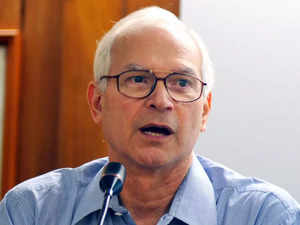Sharpening India's edge for sustainable future: Stress on employment & encouragement for cornerstones of economy

India's 2024 budget aims to boost its economy, focusing on higher education, employment creation, and empowering MSMEs. The budget supports cleaner energy, removing angel tax, and promoting entrepreneurship. It also aims to develop a 'climate finance taxonomy' to increase capital availability for climate adaptation and mitigation.

India's economic rise is a sustained phenomenon, driven by its vast domestic market, a youthful and tech-literate population, and an expanding middle class. As the country transitions from an emerging economy to a global powerhouse, the 2024 budget plan serves as a crucial roadmap for achieving a prosperous and balanced future, setting India's position among the world's top three economies.
The budget’s provisions to channel fiscal support for shoring up higher education and employment creation will help leverage India’s demographic dividend. Job opportunities for first timers and in manufacturing will act as economic multipliers, and along with the right skilling, make our workforce become globally competitive.
MSMEs, especially in manufacturing, stand to gain from the budget’s nod to financial boost, tech support, and skilling initiatives such as the scope for internship with large companies. MSMEs, the lifeblood making our economy competitive globally, must be empowered to play a bigger role in employment and technological innovation for India to emerge as a formidable economic hub in the Global South.
The budgetary direction for financial support to shift micro and small industries to cleaner energy should provide encouragement to more MSMEs to adopt sustainability, without feeling undue pressure. At Godrej & Boyce, our programmes align well with the budget’s vision of enabling MSMEs. We work towards making them competitive, sustainable, and safer to work in.
Facilitating investors to fund startups by removing angel tax should help spur more innovative entrepreneurship and create jobs relevant today. India’s services strength should be able to complement our entrepreneurs.
The announcement to develop a ‘climate finance taxonomy’ to enhance the availability of capital for climate adaptation and mitigation will help India achieve its climate commitments and green transition.
The announcement by the government to bring out a policy document that will endorse nuclear advancement and renewable energy integration with appropriate energy transition pathways will help balance the imperatives of employment, growth, and environmental sustainability. Central to clean energy initiatives is the resource of critical minerals and this budget recognised its need through the proposed Critical Minerals Mission for domestic production, recycling, and overseas acquisition. It will help lift the constraint on India’s renewables targets.
Sustainable urban development will get a boost from the significant achievement of 1.28 crore registrations and 14 lakh applications for the PM Surya Ghar Muft Bijli Yojana that will install rooftop solar plants, providing free electricity up to 300 units per month to 1 crore households.
Water management and waste management through bankable projects in 100 large cities could inspire local urban bodies in India’s urban sprawl to give these critical projects more thought.
Income tax reforms announced along with the razor-sharp focus RBI has had on inflation will help increase disposable income, drive private consumption, and hence lead to higher participation of the private sector with fresh investments being directed towards capacity building.
The easing of rural India’s stress over the past few months has breathed life into consumer segments, and their requirement for budgetary support for productivity and resilience has been acknowledged.
While the interim budget’s capital investment in infrastructure was retained, the market-based financing schemes that the honourable Finance Minister mentioned, should motivate private investment in the sector.
The more we bring down our logistics costs from better infrastructure, the better aligned our supply chains will be with the world.
Financing private research at commercial scale and the continued emphasis on expanding our space exploration should yield innovation and scientific advances for the decades to follow.
We feel optimistic about this budget’s stress on fiscal discipline, employment, and encouragement for the cornerstones of our economy – manufacturing and agriculture. A digitally empowered nation, with the necessary social inclusivity and physical infrastructure in place, is a nation ready to take on the future




